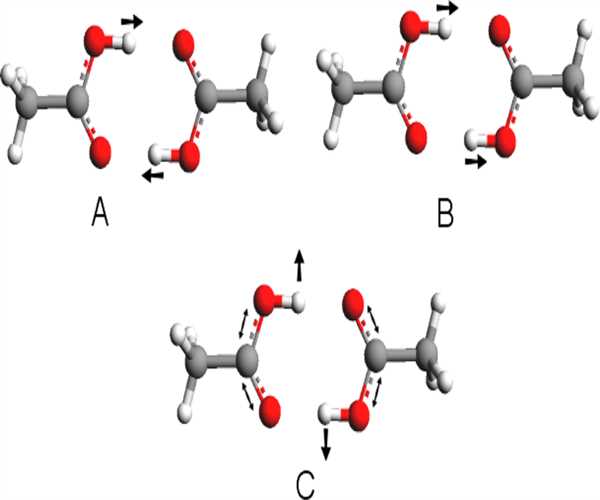Hydrogen bending is a phenomenon that occurs when a hydrogen atom is bonded to two other atoms. The hydrogen atom is attracted to both of the other atoms, and this creates a force that bends the bond angle between the two atoms. The amount of bending depends on the strength of the hydrogen bonds between the atoms.
Hydrogen bending is most commonly seen in water molecules. A water molecule consists of two hydrogen atoms bonded to an oxygen atom. The oxygen atom, in addition to forming bonds with the hydrogen atoms, also carries two pairs of unshared electrons. All of the electron pairs—shared and unshared—repel each other. This repulsion causes the bond angle between the two hydrogen atoms to be bent, with an angle of about 104.5 degrees.
Hydrogen bending can also be seen in other molecules, such as ammonia and hydrogen fluoride. In ammonia, the hydrogen atom is bonded to a nitrogen atom, which also carries a pair of unshared electrons. The repulsion of these unshared electrons causes the bond angle between the hydrogen atom and the nitrogen atom to be bent, with an angle of about 107 degrees. In hydrogen fluoride, the hydrogen atom is bonded to a fluorine atom, which is also very electronegative. This causes the bond angle between the hydrogen atom and the fluorine atom to be bent, with an angle of about 109.5 degrees.

Hydrogen bending has a number of implications for the properties of molecules. For example, it can affect the polarity of the molecule, the solubility of the molecule in water, and the reactivity of the molecule.
In water, hydrogen bending causes the molecule to be polar. This is because the oxygen atom has a partial negative charge, while the hydrogen atoms have a partial positive charge. The polarity of water is responsible for many of its properties, such as its ability to dissolve other polar molecules and its high boiling point.
Hydrogen bending also affects the solubility of molecules in water. Molecules that can form hydrogen bonds with water are more soluble in water than molecules that cannot form hydrogen bonds. This is because the hydrogen bonds between the molecule and water molecules help to stabilize the molecule in solution.
Finally, hydrogen bending can affect the reactivity of molecules. For example, the bent bond angle in ammonia makes it more reactive than a molecule with a linear bond angle. This is because the bent bond angle makes the nitrogen atom more exposed to attack by other molecules.
Hydrogen bending is a complex phenomenon that has a number of implications for the properties of molecules. It is a topic of ongoing research, and scientists are still learning about the full extent of its effects.